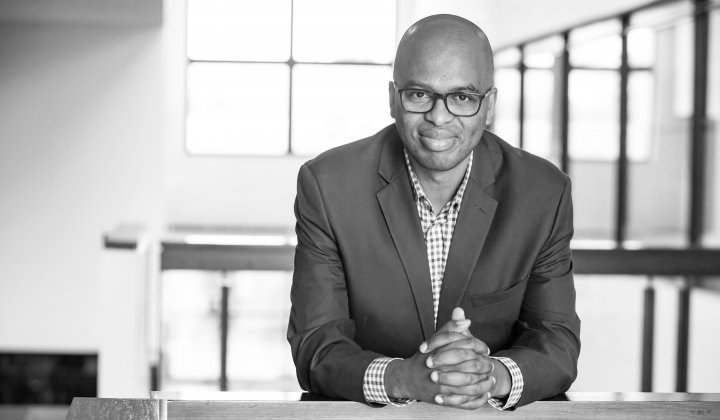The most obvious exception to this statement is undoubtedly someone like Wangari Maathai, the Kenyan political and environmental activist who made fighting for the environment sexy in the 1970s, a time when people weren’t talking about such long-term considerations. Maathai, who passed away in 2011, became the first African woman to win a Nobel Peace Prize in 2004 for her efforts to advance democracy and peace, as well as sustainable development.
As the Nobel committee noted at the time: “Peace on earth depends on our ability to secure our living environment. Maathai stands at the front of the fight to promote ecologically viable social, economic and cultural development in Kenya and in Africa. She has taken a holistic approach to sustainable development that embraces democracy, human rights and women’s rights in particular. She thinks globally and acts locally.”
Maathai’s most profound impact may, however, lie in her standing as a role model in African society; an example of how to fight for right and make your voice heard. She inspired Kenya’s dynamic young climate activist Elizabeth Wathuti, who delivered a stirring speech in 2021 at COP26 during which she highlighted the devastating impacts of climate change on low-income countries, many of which are in Africa.
Wathuti is among an increasingly vocal group of young activists of whom Maathai herself would have been proud. Others who have been celebrated by the likes of Greenpeace include Uganda’s Vanessa Nakate and Oladosu Adenike from Nigeria. While Wathuti is renowned for using her platform to highlight other emerging voices, such as Kenyan podcaster Abigael Kima, Hamira Kobusingye from Uganda, Zambia’s Akufuna Muyunda and Rwandan eco-feminist Ineza Umuhoza Grace.
Add in young South Africans such as Ayakha Melithafa, Yola Mgogwana and Raeesha Noor-Mahomed – the Greta Thunbergs of our country – and it is evident that there are young leaders out there, champing at the bit and calling in vain for the leaders from our generation to act, be bold enough to institute new leadership models, and do more than just give lip service to effective leadership.
It is fair to say that the current crop of global leaders has failed – dismally. We have proven ourselves to be highly ineffective as leaders when it comes to addressing the problems of our time. We are clearly out of our depth and out of ideas. So, it’s hardly surprising that the new crop of leaders are frustrated.
There is, however, a solution to this impasse: Working together as equals.
If we accept that our generation has dropped the ball, why not look to the coming generation for leadership models that are different, more cooperative and truly collaborative? Open the door to a more future-fit way of co-existing on this planet? A more equitable approach infused with greater humanity?
The established order may be fresh out of ideas, but the new generations of leaders are not. In recent years young people have come to the fore to speak about issues like personal actualisation and fulfilment, transparency and trust, sustainability, harnessing technology, influence, empathy and integrity. These touchpoints, as a study by US management and organisational consultant Jake Aguas noted, point to a future leadership model that “places a high priority on connection, results, service, and development”.
We see these values coming through in the way our own students gauge the social impact and commitments of business schools on such critical issues as climate leadership. Just recently, GIBS achieved a Level 4 Positive Impact Rating for its transformative efforts in education. The rating, which falls under the aegis of the United Nations PRME Global Forum, is an important future barometer given that it was developed by students, for students, and reflects the current student experience across a range of categories including programmes, research and campus, as well as the integration of sustainability into core values and practices. In the case of GIBS, this includes courses such as the Applied Business Project, which used experiential learning methods to achieve outcomes aligned to the Sustainable Development Goals, with students being tasked to solve real-world challenges using the theories and frameworks learned in class.
The Positive Impact Rating is not just a tool that prospective business students can use to make informed decisions about the institutions and faculty they entrust to provide a meaningful educational journey. It also affords business schools and the business community at large an opportunity to really hear what future leaders in society are telling us about their values and aspirations, and how these align with our own thinking.
Our role as incumbent leaders must increasingly turn from telling to listening — from dampening down voices we don’t understand to celebrating the new leaders of society.
It’s easy for us to think, in Africa, that we are not part of the global conversation about challenges like climate change and net-zero, or inclusivity and the future of work in an artificial intelligence-driven world, but we are. These are the challenges of the future, and they require young minds and open hearts to help carve a new path.
As Professor Jonathan Marks, programme director for the GIBS Spirit of Youth Leadership Development Programme, recently put it: “We’re in a deep crisis… We desperately need the talents, skills and energy of the next generation to help not only correct the imbalances of the past but to fix the mess that we now find ourselves in.”
Ironically, after two decades of relative inertia on critically important matters, handing the torch to the next generation might be the greatest example of effective leadership the older generations can offer.



